Home School Math Curriculum: CTCMath vs. Singapore Math
Home school math is often one of the reasons people worry about home schooling. They worry, especially at the higher levels, that their abilities to teach will be surpassed by what their children can and need to learn. Finding a home school math curriculum that works for your children can be an instrumental step in making homeschooling not only possible, but easier and more enjoyable!
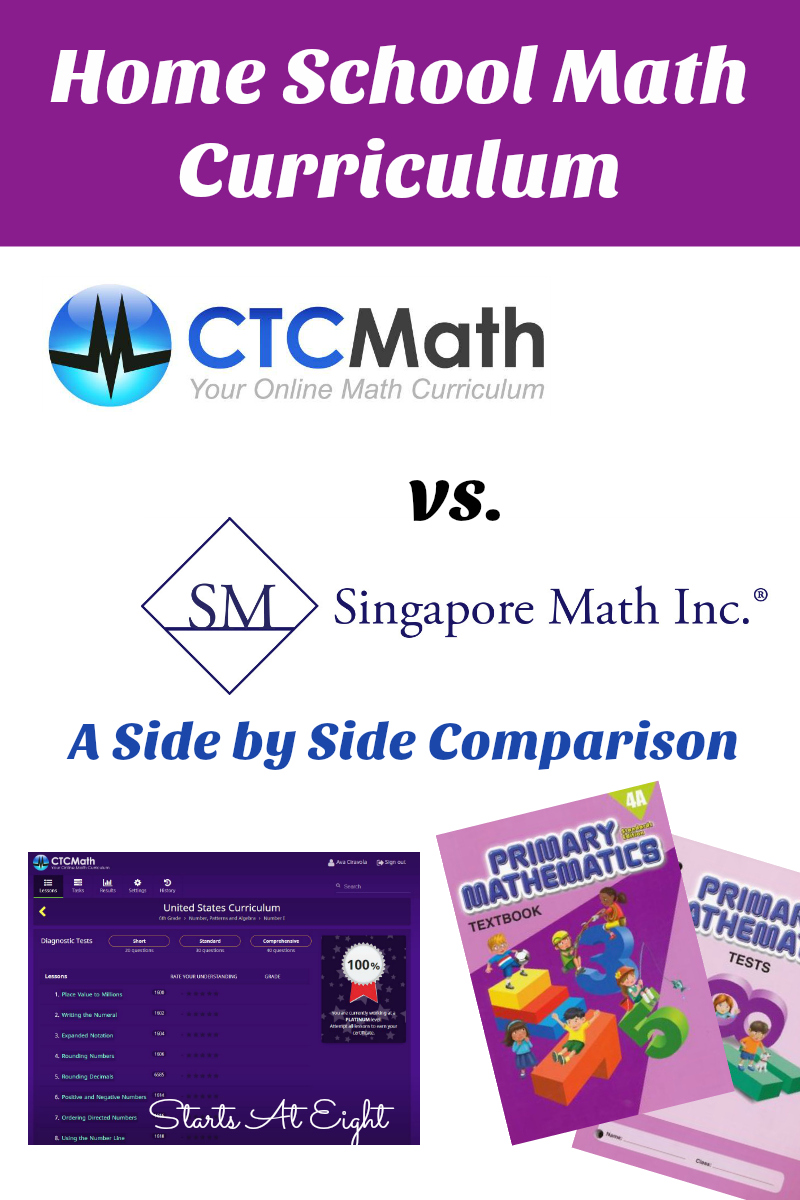
Since I began home schooling in 2006 I have used a host of different home school math curricula. The changes started when my oldest began struggling in 6th grade. This prompted me to go looking for something more suited for both she and I. You can read about our math journey here. Also, let me say she went on to score higher than her friends (both public and home schooled) on her college math placement exam.
Home School Math Curriculum
It can be tough to choose a home school math curriculum because there are loads of options out there! One of the things that has helped me is to make a list of what features I want or that I feel would work for my child and use that as checklist to narrow the field. I have multiple children in my house and each one has had different needs at different times so we have been happy to ebb and flow to different curriculum options as needed.
Home School Math Curriculum We Have Used:
Be sure to click on each one to check out my thoughts on each program!
- CTCMath {I received a CTC Math membership as part of this review and I was compensated for my time in writing it. All views are my own and I was not required to write a positive review. Please see my full Disclosure Policy for more details.}
- Teaching Textbooks
- Math Mammoth
- Singapore Math
- A+ Interactive Math
- Khan Academy
- Mr. D Math
- iPractice Math
- ShillerMath
What’s to Love About CTCMath?
CTCMath is a
1. Consistent Math Program from K-12
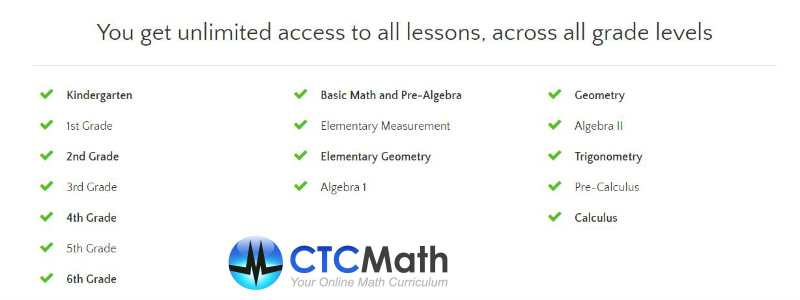
With CTCMath you never have to switch curriculum because they offer math from Kindergarten through Grade 12! That means if your kids love it, they will always be able to learn with their tried and true math program.
2. Reasonable Cost
Homeschoolers get a huge 60% discount off the regular price!
A Single Membership:
$11.97 per month or $78.80 for 12 months
Family Membership (2+ children):
$15.97 per month or $118.80 for 12 months
3. Ability to Schedule Tasks Within The Program
With CTCMath you can schedule tasks with due dates for each of your children from your Parent Portal.
We typically use a student planner for each of our children that I plan out and create at the beginning of each school year. But if you are not a paper lover, or you don’t want to have a separate planner for everything, or you plan in smaller chunks as you go, then having the built in task creation option is key!
4. Parental Controls
YES! You have your own Parent Portal where you can see each child’s progress, schedules tasks, see activities, awards and weekly reports and even print everything out if you want or need to keep paper records!
Beyond what you can change and see in your Parent Portal, you can also choose to have both e-mail notifications in the form of weekly progress reports right to your inbox, as well as awards certificates every time one of your children earns one!
5. Clear Progress and Tracking
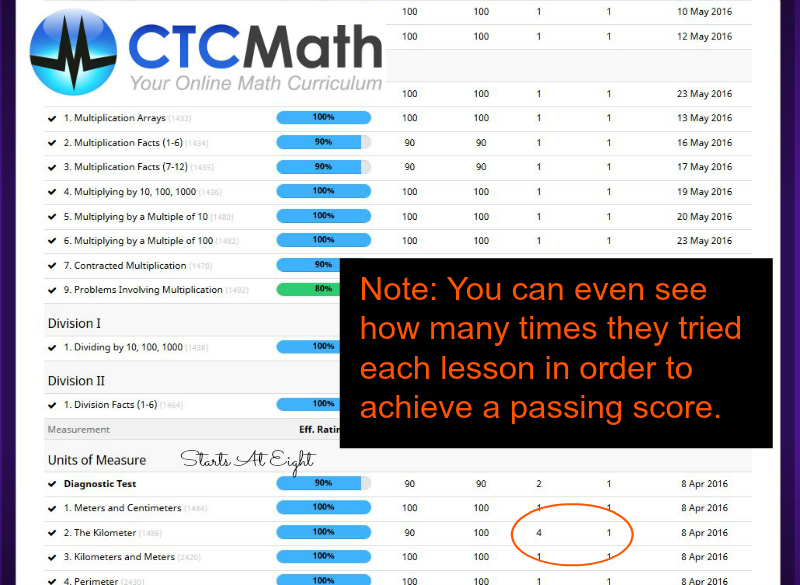
Not only can you see and track progress in your Parent Portal, but each of your students can easily see and track their own progress.
6. Flexible Timeframe
Since they offer a 12 month subscription it lends itself to a flexible schedule!
- Stretch out the year if you need to.
- Or home school year round.
- It’s also great for summer review!
- You can go back and redo sticky parts, or even move ahead if you want to!
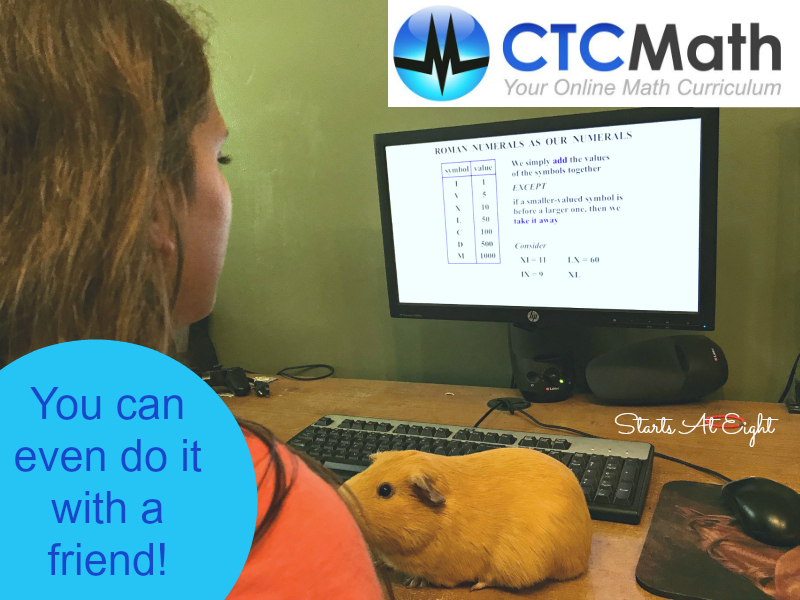
Connect with CTCMath: Facebook : Twitter : Pinterest : YouTube : Instagram : Periscope
CTCMath vs. Singapore Math
Singapore Math offers a variety of programs, including multiple paper options, as well as a digital option for Primary Math they are currently rolling out. Since the whole of my experience has been with Singapore Math’s Primary Mathematics US Edition books, I will be using that as my comparison. I will try to note where other Singapore Math products might fulfill one of the characteristics listed.
Online vs. Physical Books
CTCMath is a
Singapore Math is mostly physical books (at all levels). However they are in the process of rolling out a digital version of Primary Mathematics.
Cost
While I will not do a cost analysis for you, I will lay out the cost and you can decide for yourself and your family circumstances which is more beneficial.
The CTC Math membership for 1 homeschooled child per year is $78.80 and for 2+ children is $118.80
Singapore Primary Mathematics books vary in cost from $13 – $25 depending on the book. For the Primary Digital Subscription which includes teaching notes, lessons, student practice, and tests. A full-year individual subscription of one level is $99 per year.
Common Core Aligned?
“CTCMath is easy to use, great for all ages and not common core aligned.”
The Primary Mathematics that we used was not common core aligned but they offer it in a common core aligned version.
Spiral vs. Mastery
CTCMath uses a mastery approach to math meaning that the previous topics aren’t reviewed over and over. This type of approach assumes you have mastered the content and can therefore move on.
Singapore Math introduces skills in small increments, which sounds like a “spiral” program. However, “mastery” is expected and even needed for advancement to the next skill. Singapore’s unique approach doesn’t’ fall neatly into either category, it’s sort of a mix of both. Instead of having review be via random computation problems or by re-teaching the skill over and over again, they simply use the skills. For example, word problems in level 3 may require the student to first add two groups of items, and then divide them by the number of people using them. By doing this they have just reviewed addition and division!
Placement Tests?
CTCMath offers placement tests for grades K-6.
For Singapore Math you will need to look at the table of contents (on each product page), samples, and scope and sequence charts to assess which level is most suitable for your student.
Added via reader input:
“Yes, Singapore does have Placement Tests and the best description of how to use them that I’ve seen is on the Sonlight website. Also, the U.S. edition relies on the parent to determine what to do each day but the newer editions (standards, common core, dimensions divide things up more in the manuals so you know how much to do in a lesson.”
Flexibility of Levels
With a CTCMath membership you have access to all the math levels and can move ahead or behind as needed.
With Singapore Math you purchase one book/level at a time. You can certainly purchase more books/levels but each one is sold individually. If you are like us, I purchased one level at a time for my oldest and held on to them all so my other kids could use them.
Assignments
With CTCMath you can schedule assignments (tasks) from your parent portal and they show up in the student dashboard.
Singapore Math does not have an easy way to create assignments. This was always a BIG downside for me.
CTCMath vs. Teaching Textbooks
Interested in seeing how CTCMath stacks up with Teaching Textbooks? Click on the image below to see my comparison!
Get CTCMath for Your Home School

CTC Math membership is an affordable homeschool math curriculum option for home school families.
Purchase any 12 Month Membership and receive a bonus 6 months for FREE! (total 18 months).
Home Schooling Families receive a massive 60% Discount from the regular cost of CTC Math.
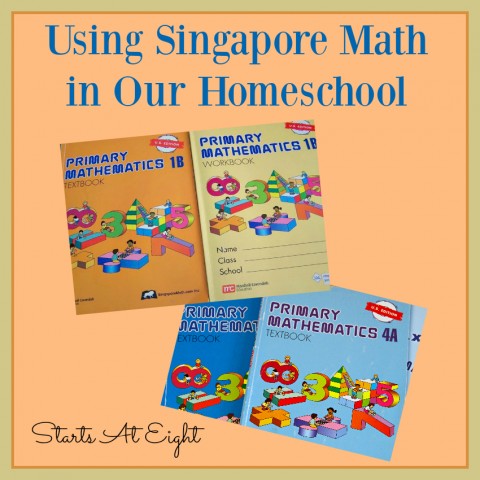
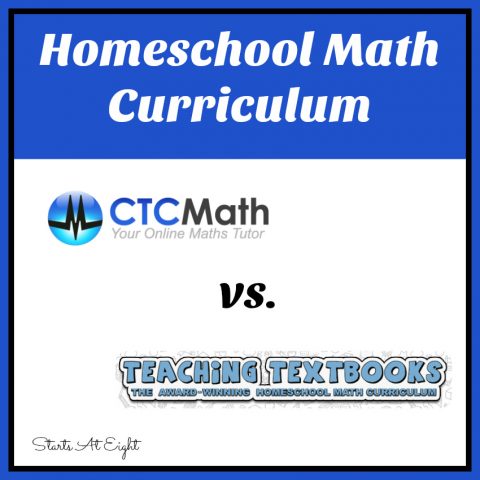
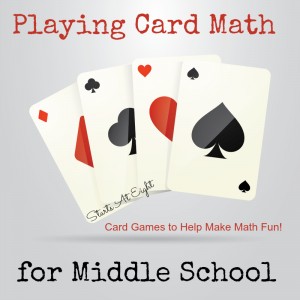
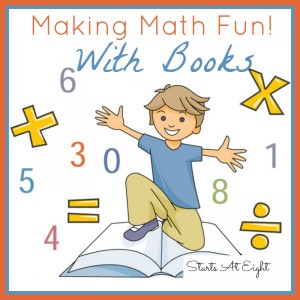
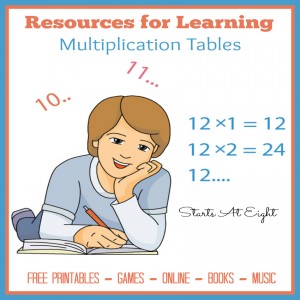
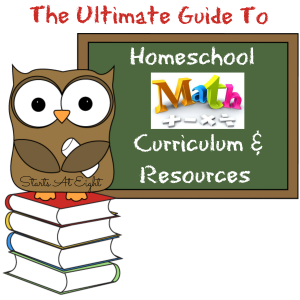



October 13, 2018 @ 6:25 pm
Singapore Math does have tests to determine placements.
October 14, 2018 @ 8:08 am
Thank you Laurie! I didn’t know that! Can you leave a link to where you find them so that I may add it?
October 17, 2018 @ 11:41 pm
Yes, singapore does have placement tests and the best description of how to use them that I’ve seen is on the Sonlight website. Also, the U.S. edition relies on the parent to determine what to do each day but the newer editions (standards, common core, dimensions divide things up more in the manuals so you know how much to do in a lesson.
October 18, 2018 @ 11:41 am
Thank you so much Brianna! This is great information!
January 5, 2019 @ 10:11 am
Thank you for this!
We just jumped from Singapore to CTC this January, and I’m not sure how to proceed. If it was the beginning of the year, I would just see that they complete all lessons. But mid year I’m not sure.
My 4th grader was behind in Singapore. She struggles with math and is a slow worker. If we ever get behind it seems impossible to catch up, because she’s just not capable of increasing the number of problems she does in a day. We’ve also been working daily on multiplication tables for forever, but progress is sloooowww.
My 2nd grader likes math and was advanced, but we had him in public school for a bit and just pulled him in December. So I don’t know what he knows, and he’s lost ground while being in public school. When we sent him to public school for first grade, he just about knew all his sister’s multiplication table questions.
Any tips on how to plan the rest of our school year with CTC math? What do your kids do in a day with CTC math?
January 7, 2019 @ 5:18 pm
I would suggest having them take a CTC placement test. Then just begin where they fall and work through a lesson each day. Each of my kids work differently and things have changed from year to year. Kids that math comes easy to you may want to have them work more lessons per day. Kids that are struggling may just need to work a certain length of time and what they get done in that time is what they get done. I have had 3 kids use the same math program with two needing double the time to complete a lesson than their sibling. Each child is different. It sounds random but sometimes you just need to try different variations and see what sticks. I have one who hates math – therefore my suggestion would be to do it first and get it done. But she feels the opposite. She chooses to do it last because it marks the day done when she finishes it.
January 17, 2019 @ 8:07 am
So that would be like 15 diagnostic tests, right?
January 17, 2019 @ 10:09 am
I’m not sure what you are referring to Joyce. Could you be more specific?